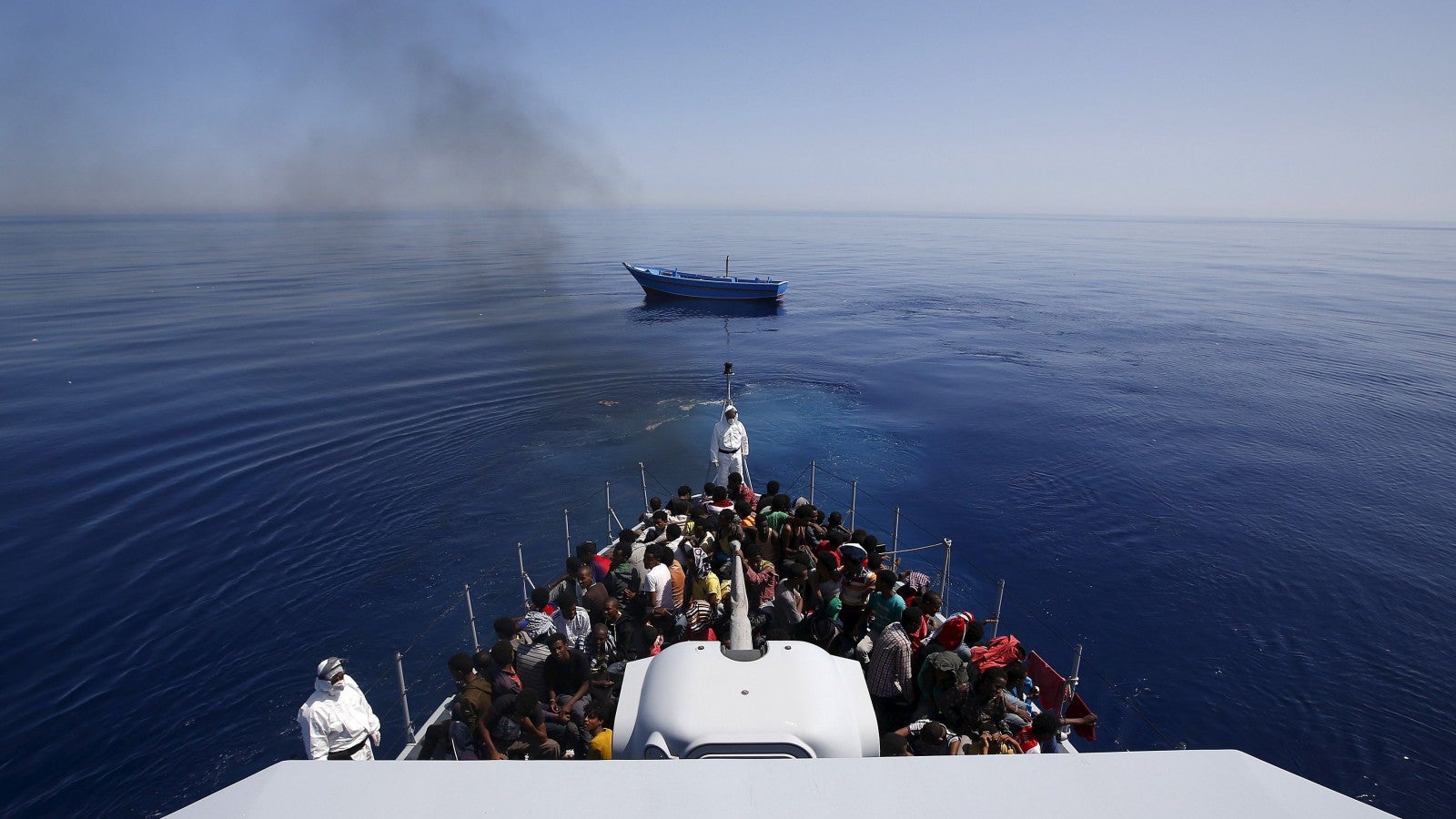The EU is deploying warships to stop migrants and refugees dying—or reaching Europe
Some 2,700 migrants and refugees have died crossing the Mediterranean so far this year. Who bears the responsibility to save these sinking ships? The European Union is launching a new policy to proactively engage people smugglers before they reach Europe’s shores.


Some 2,700 migrants and refugees have died crossing the Mediterranean so far this year. Who bears the responsibility to save these sinking ships? The European Union is launching a new policy to proactively engage people smugglers before they reach Europe’s shores.
From today (Oct. 7), warships from across the EU, commanded from Rome, will patrol the seas between Europe on the northern side of the Mediterranean and the North African coast to the south, where migrants and refugees are initially packed into often overloaded and unseaworthy crafts. The warship teams will be able to “board, search, seize and divert” any boats suspected of being used for human trafficking. This is a step down from earlier ideas that considered airstrikes against smugglers’ boats before they left port—if that were even possible.
“The operation is aimed at disrupting the business model of human smuggling and trafficking networks in the Mediterranean and to prevent the further loss of life at sea,” according to the European Council. It will start with six ships, its commander told the BBC.
Hitherto, efforts have been focused on border patrol and rescue.
Initially, responsibility for patrolling many of the most popular migration routes fell to the Italians, whose country juts out into the sea and is the preferred destination for many of those who set out from Libya. Then, 12 months ago, Operation Mare Nostrum (“our sea”) was replaced by Operation Triton, run by the EU’s border force, Frontex.
But as the flow of people making the dangerous voyage increased, budgets were cut. Italy’s Mare Nostrum cost €9 million ($10.1 million) a month, activists said; the EU-run Triton operation was given a third as much. Charities and NGOs have stepped in—Save The Children’s staff are travelling on Italian navy ships, and Médecins Sans Frontières launched its own vessels to rescue and treat people at risk on the seas.
The hope is that the EU’s new plan, dubbed Operation Sophia, will be the best way to prevent further loss of life as well as stem the influx of migrants currently straining Europe’s resources. It’s named after a baby born in August on board a German ship, after her mother was rescued off the coast of Libya.